For six weeks of my summer between the 2nd and 3rd year of my Social Work degree I completed an internship with the aim of improving my skills relating to the facilitation of PPI (Patient and Public Involvement) workshops and working with people, as well as expanding my knowledge of the issues women of ethnic minority/migrant communities face.
Week 1: I spent this first week getting to know the professionals I would be working with throughout the six weeks and forming positive and trusting relationships with them. I also worked on getting to grips with what the project was, what my role as the intern was, and how the world of PPI works.
Week 2: The majority of this week I read information/research on the various methods we could use for the workshops and general project. I also met with more professionals and learnt about the PPI process and benefits. To prepare further for the workshops I, along with two experienced colleagues (including my internship supervisor), selected the participants we would talk with in the workshops.
All the above information then started to be drafted into the report document to explain the method, reasoning and research behind the project.
Whilst we originally aimed for one (maybe two) workshop groups where we would use the methods I researched within the week, to engage the participants in a productive conversation, we ended the workshop week with an entirely different plan, two workshop groups, a few one-to-one conversations and email responses for those unable to attend.
Week 3: This week saw me preparing for the workshops by talking to other professionals more experienced in the field, amending the questions we aimed to use to engage the participants in a really positive and productive conversation and ensuring that the workshop space would be as equal, fair and safe as we could make it. I learnt this week, the importance of not guaranteeing a safe space as this removes all space for human error. This can make others uncomfortable as they fear making a mistake (and their apology not being accepted).
Week 4: Week four was workshop week. During this week two large group workshops were and four, one-to-one workshops were conducted. I learnt to co-facilitate workshops with both people I do and do not know, and how to engage participants in difficult conversations. I learnt the importance of ensuring participants felt validated and accepted in the space. Each of these workshops were transcribed and written up into a large document collectively.
Week 5: I, along with my internship supervisor, conducted a thematic analysis during this week (putting all the participants contributions and ideas from the workshops into different themes to make the report easier to write and read as it flows easier). A few last minute workshops were held in this week (one-to-one) and I also started writing up our findings in the report.
Week 6: In week six, I, along with my internship supervisor, wrote the majority of the report draft to be sent to the project leads. I also created a PowerPoint presentation to present the findings from this project to the project leads and outline my learning experiences and how they will aid in my final year of university and future career.
Lessons I learnt:
- Flexibility (I learnt to be flexible BEFORE the workshops began but also DURING (where our method did not fit with the participants we were talking to, especially during one-to-one conversations)
- Time management
- Working with others
- Co-facilitating workshops with people I do and do not know and ensuring the participants feel accepted in the space and their feelings/experiences validated
- Presenting my ideas to professionals I do not know
- Professional report writing
- Ensuring the space is as safe as possible without guaranteeing a safe space for all
This project has taught me a significant amount about working with Women from ethnic minority/migrant communities and the challenges they face both in research but also in daily life. I am sure this understanding as well as the knowledge I gained about working with other professionals and presenting my ideas to them effectively, will stand me in good stead for my final university year and future career in social work.
Megan Jukes, Social Work Student
A note from Dr Orlanda Harvey:
‘It was a joy to support Megan in developing her research skills, and work alongside her on this project. She was very committed to understanding what was required and her confidence grew in leaps and bounds over the course of the project. I am very grateful to the many colleagues at BU who gave up their time to help support her learning and development, and I am particularly grateful for the help of Kate Jupp as without her the PPI sessions would not have happened. The report that has been drafted will be very helpful to anyone seeking to understand how to engage participants in research in a meaningful way.‘
 Sara was presenting her doctoral work where she has used appreciative inquiry to explore midwives’ experience and processing following the occurrence of Obstetric Anal Sphincter injury (OASI) during spontaneous vaginal birth. Sara said that she found the conference and networking opportunities “inspiring and helpful for her PhD.”
Sara was presenting her doctoral work where she has used appreciative inquiry to explore midwives’ experience and processing following the occurrence of Obstetric Anal Sphincter injury (OASI) during spontaneous vaginal birth. Sara said that she found the conference and networking opportunities “inspiring and helpful for her PhD.”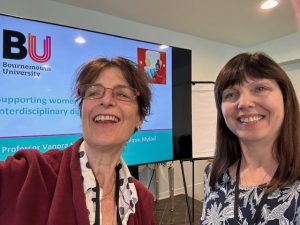
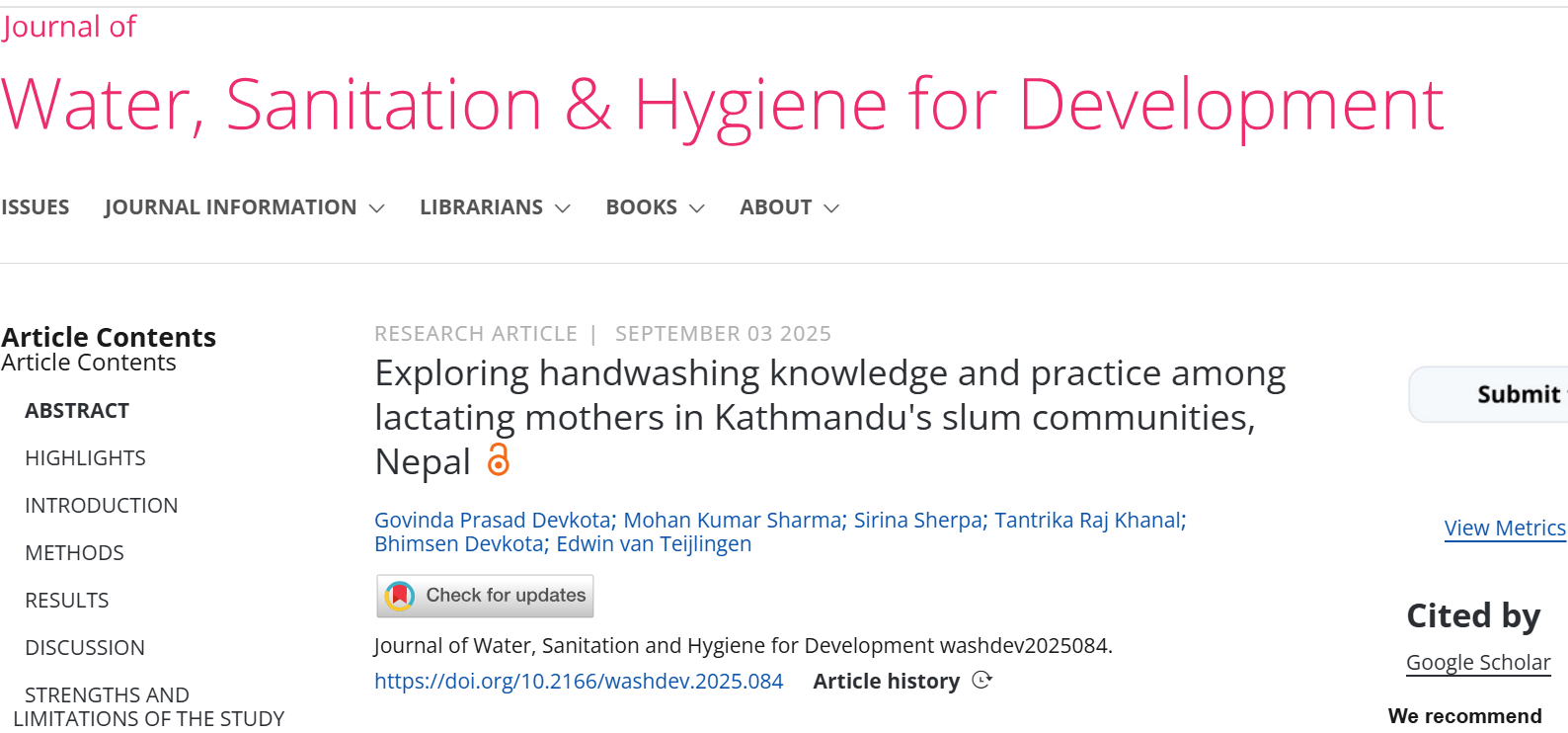

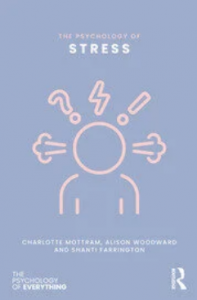
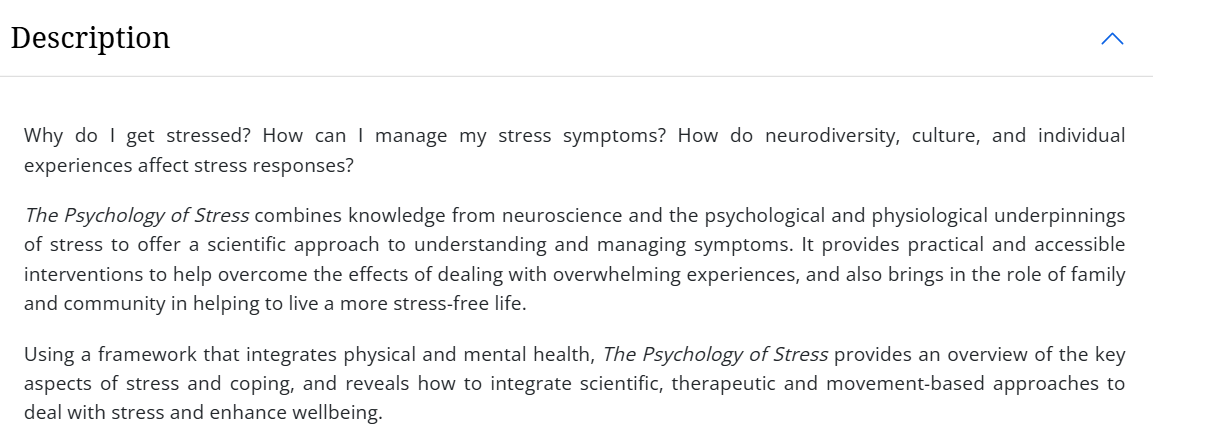
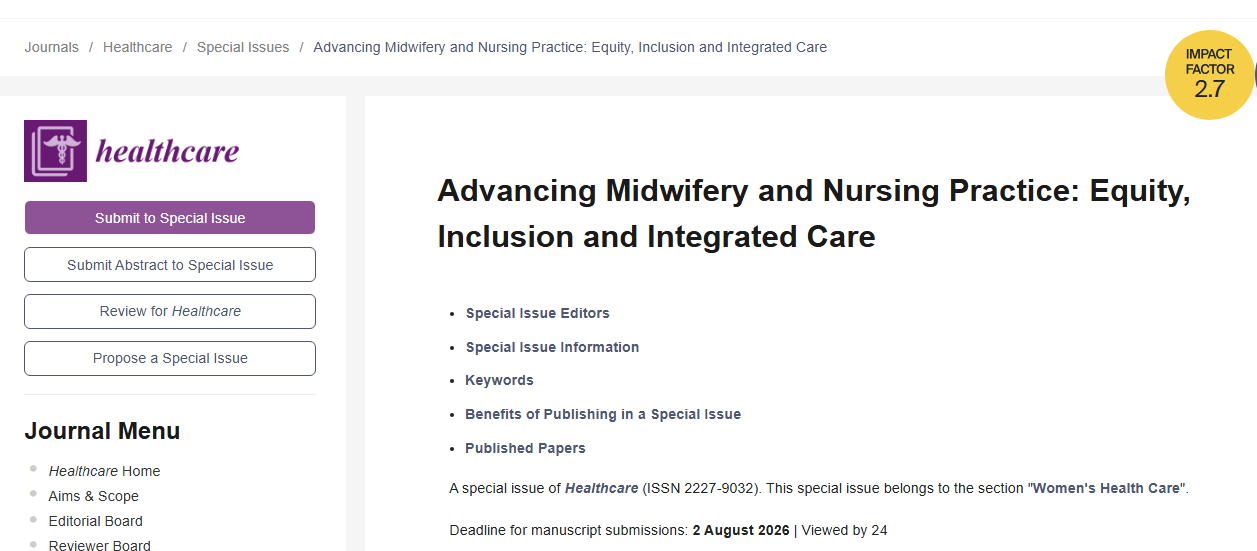
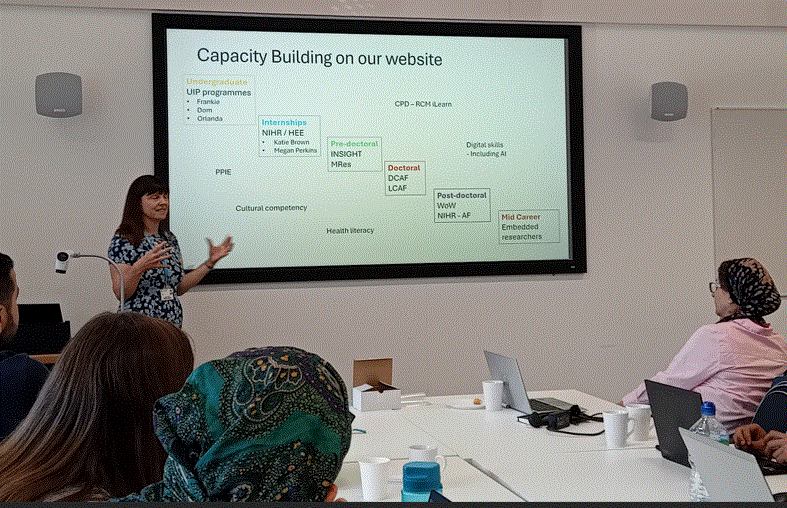


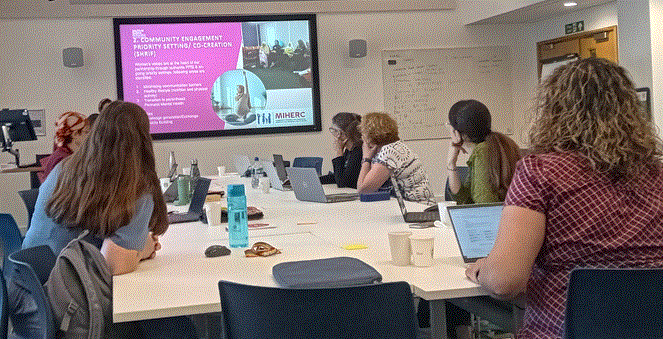
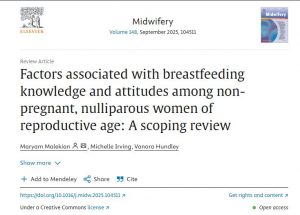 Malekian M, Irving M, Hundley V (2025) Factors associated with breastfeeding knowledge and attitudes among non-pregnant, nulliparous women of reproductive age: A Scoping review. Midwifery, vol 148, September, 104511
Malekian M, Irving M, Hundley V (2025) Factors associated with breastfeeding knowledge and attitudes among non-pregnant, nulliparous women of reproductive age: A Scoping review. Midwifery, vol 148, September, 104511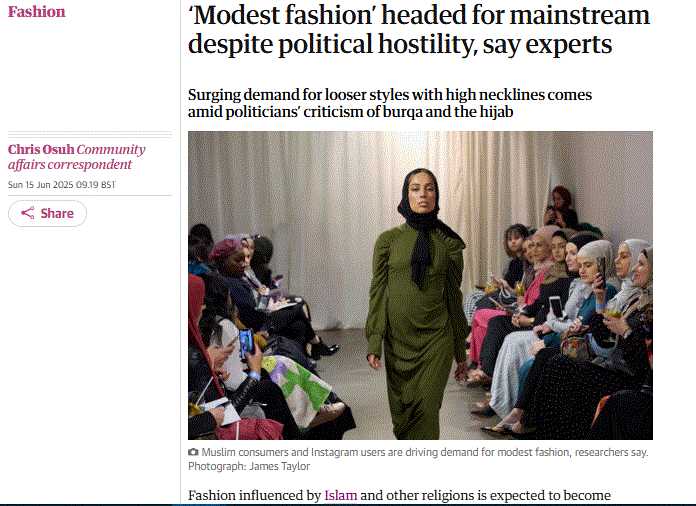
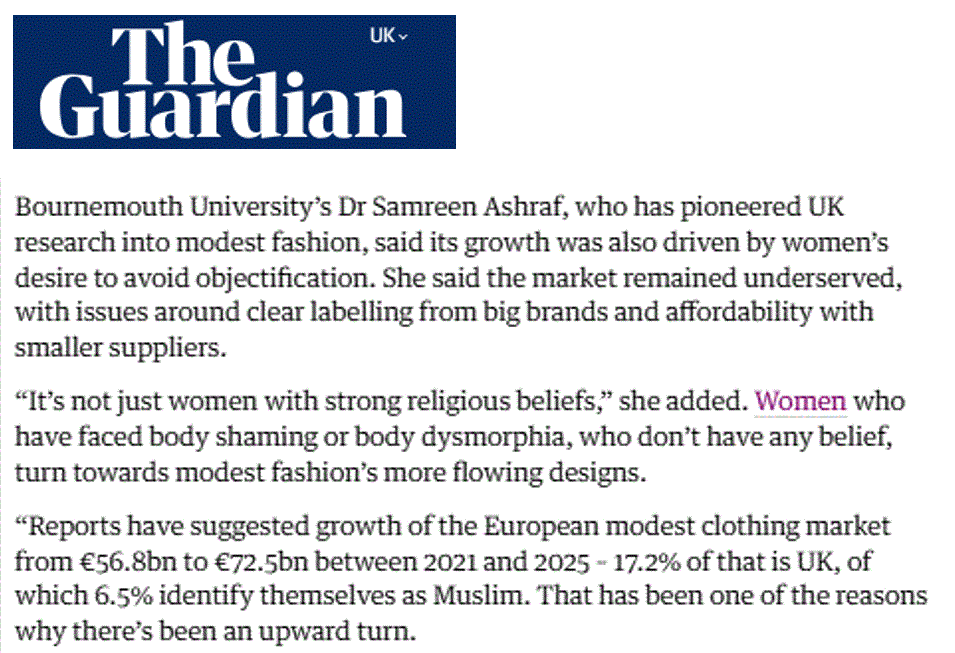
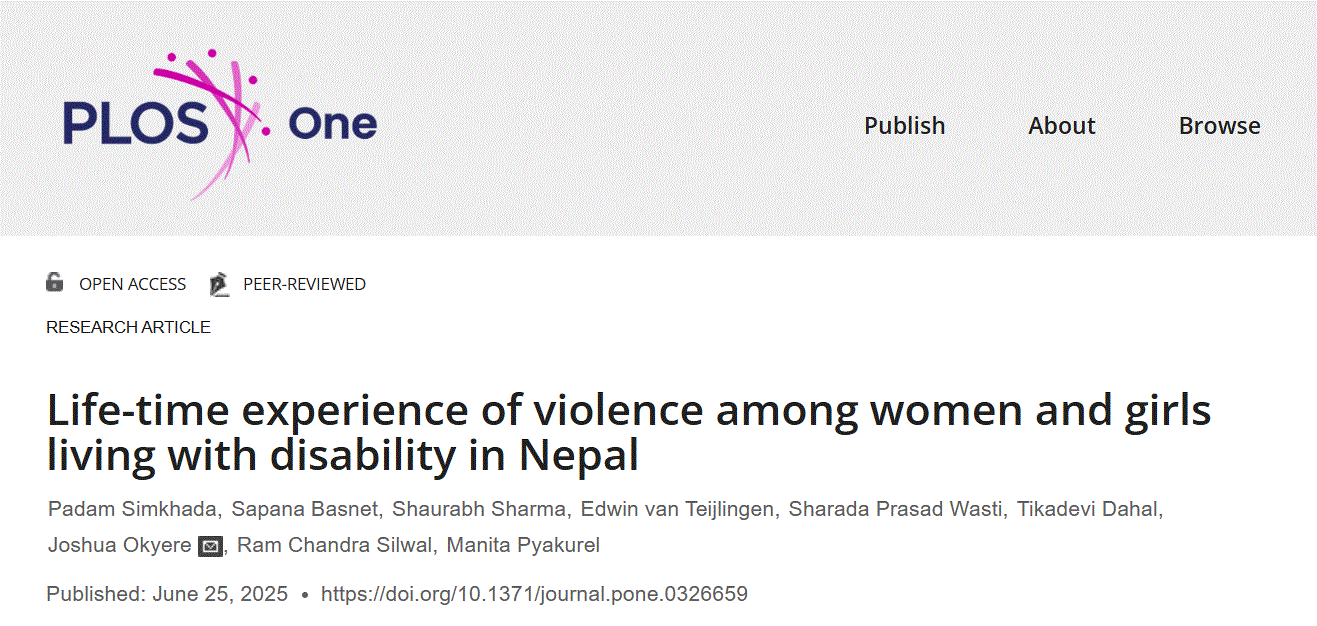
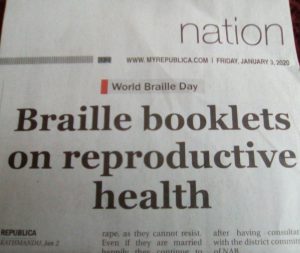

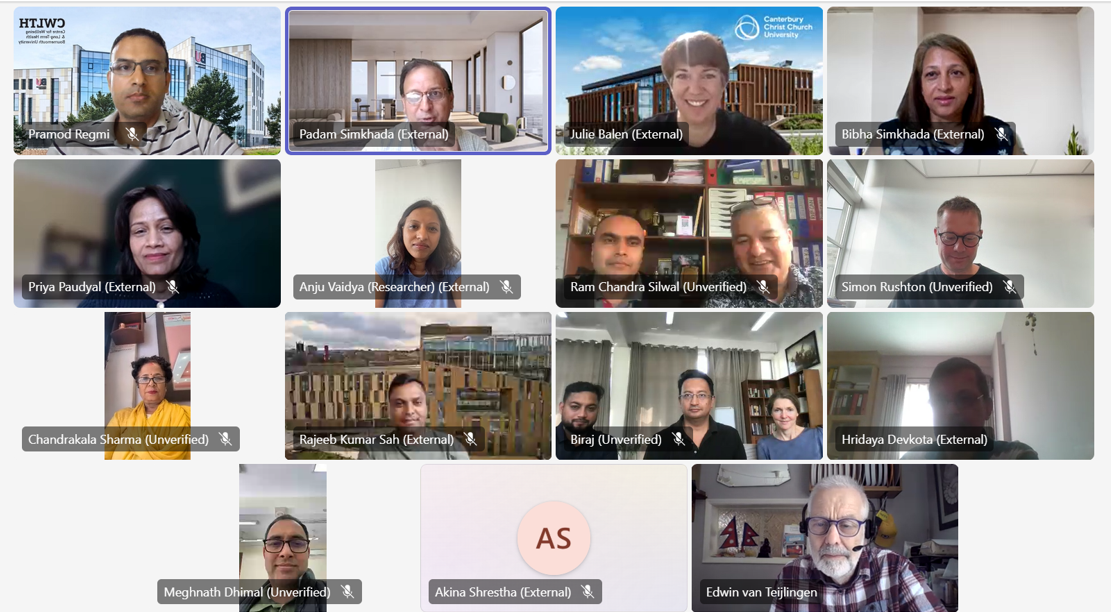



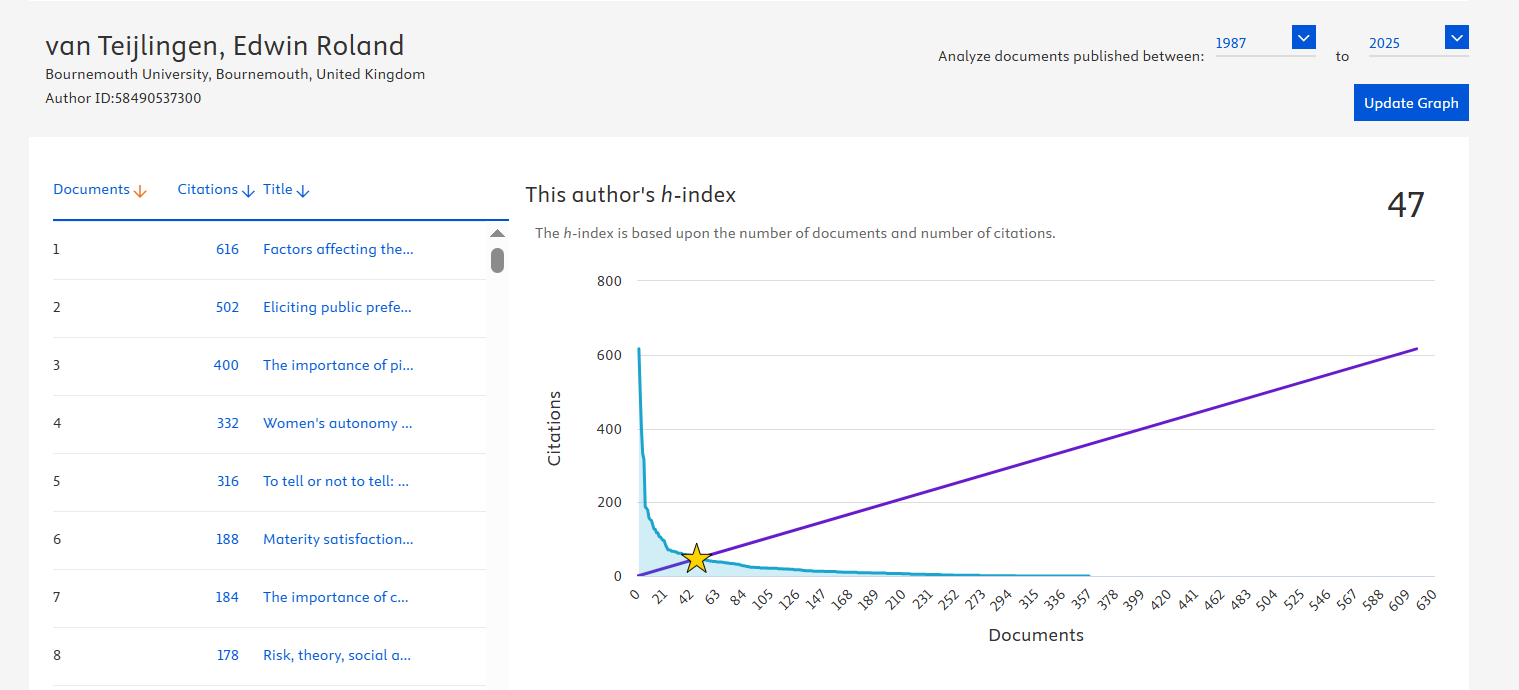

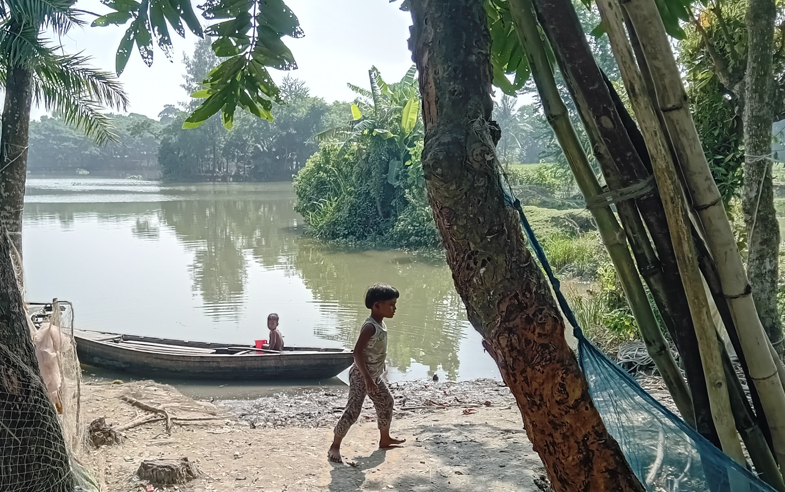
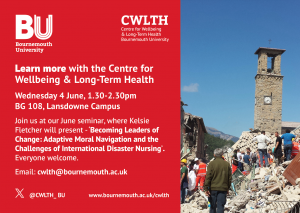
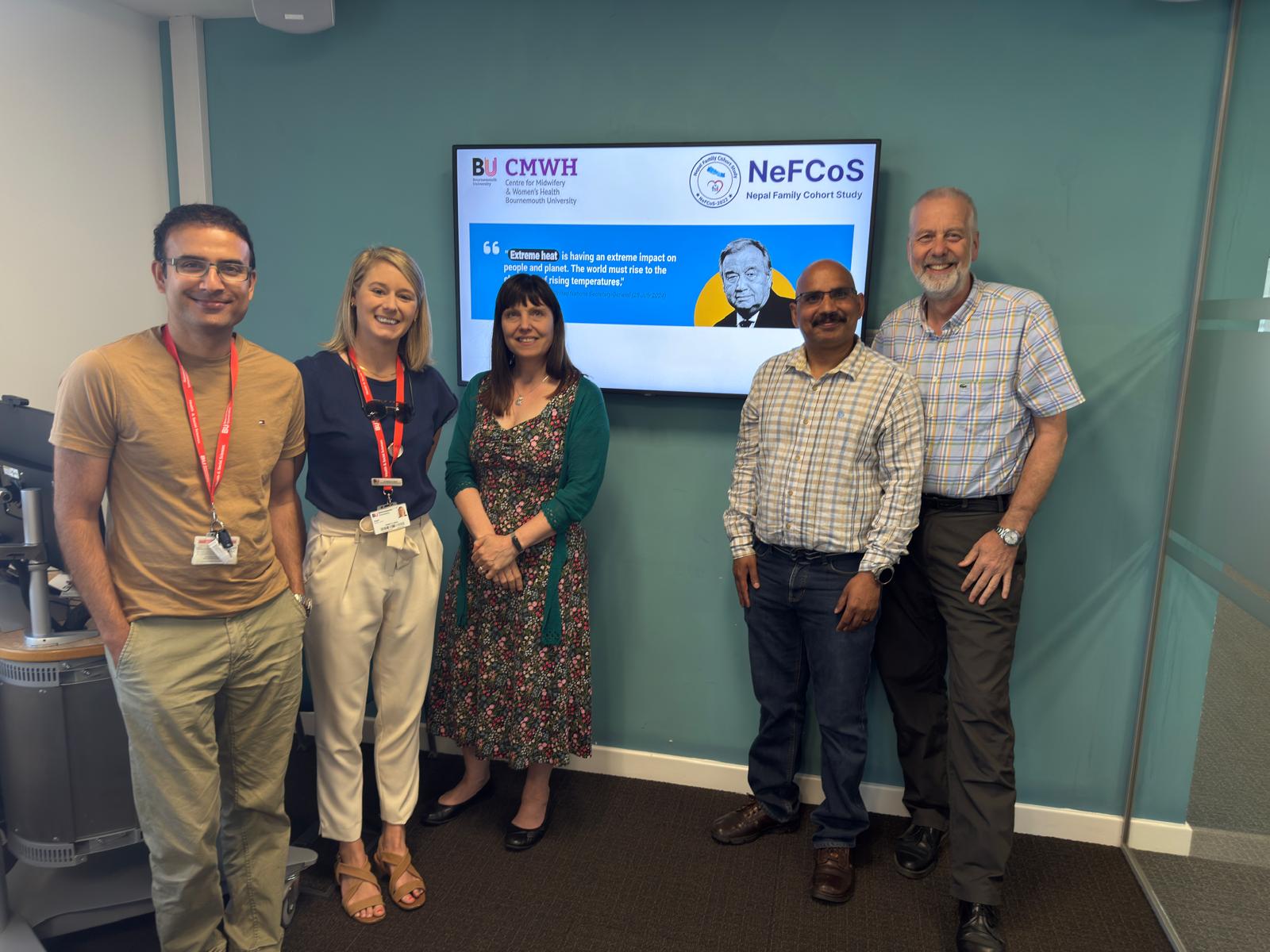
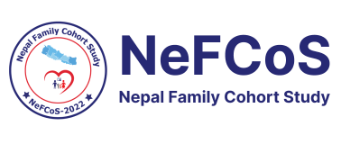
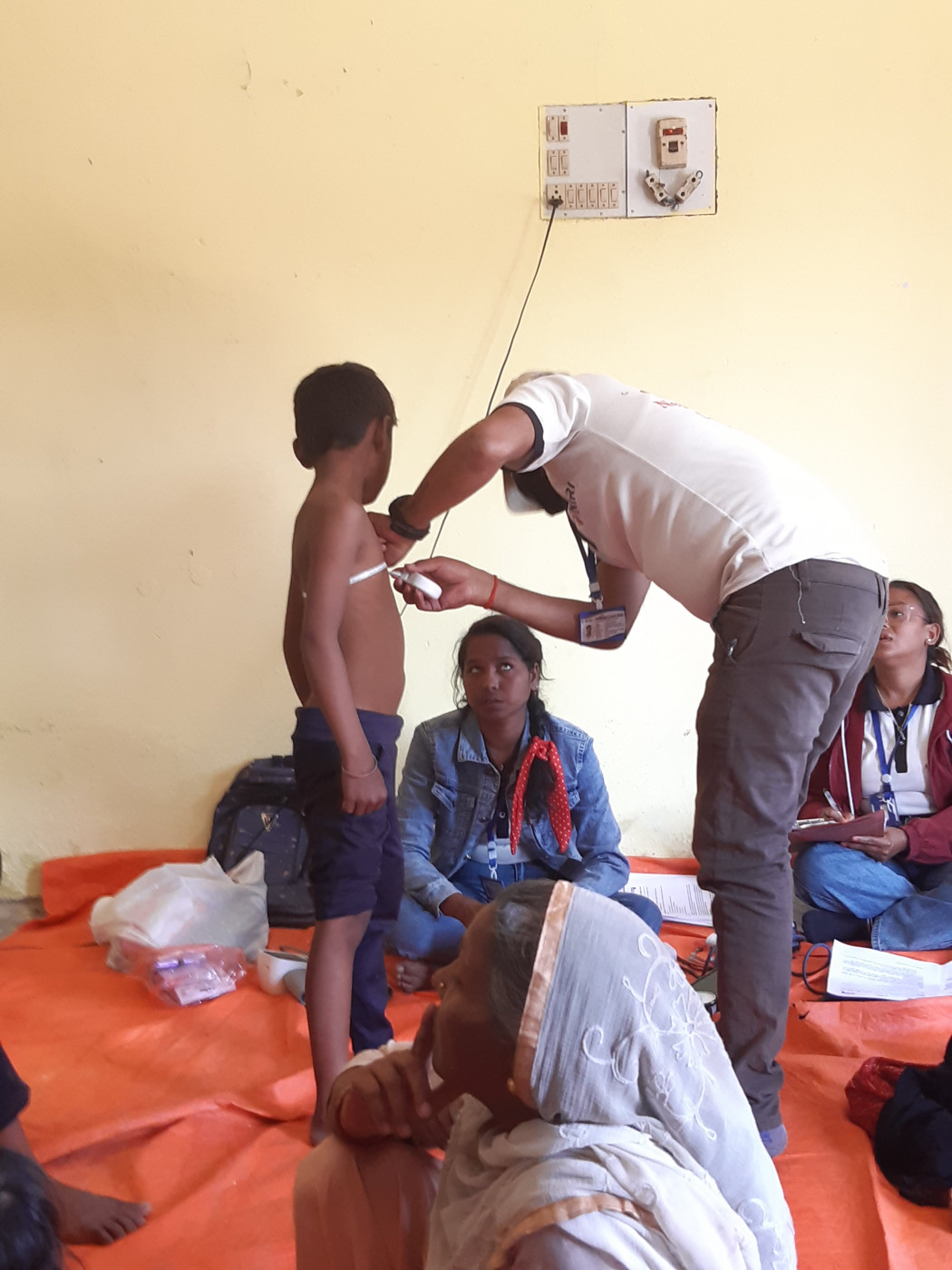
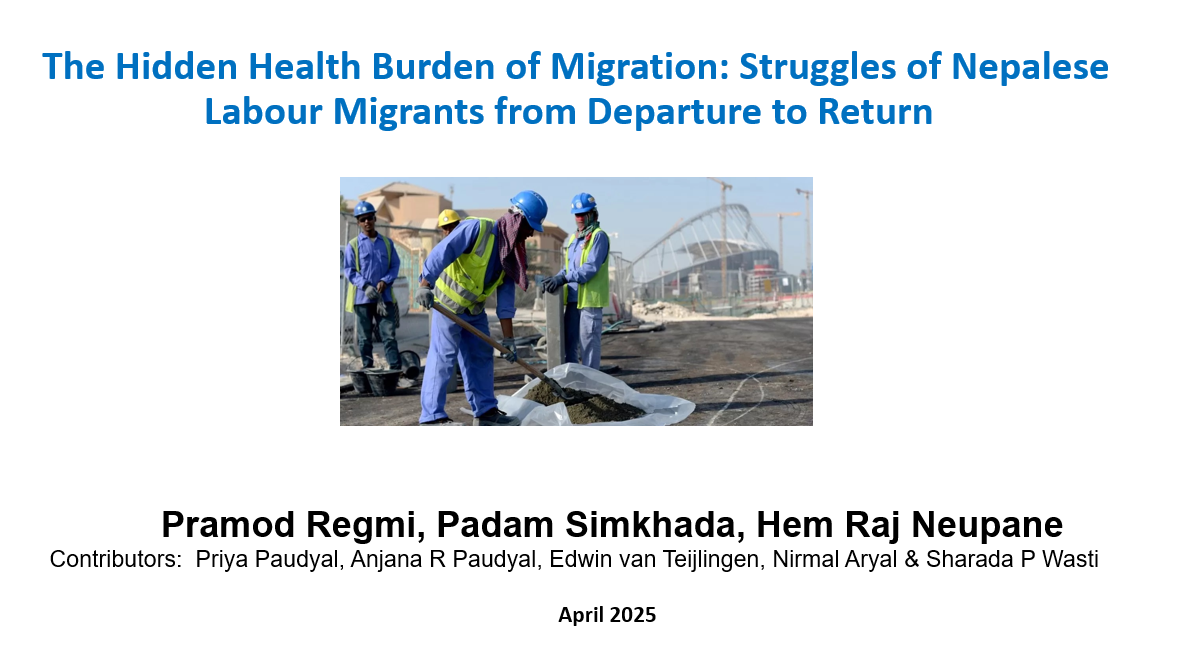


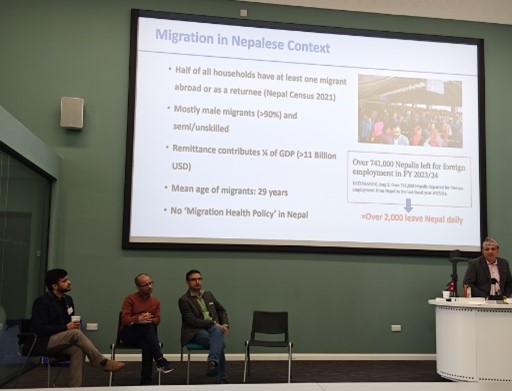












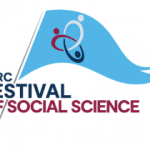 Six BU contributions 2025 Festival of Social Sciences
Six BU contributions 2025 Festival of Social Sciences BU paper among top 20 most cited papers
BU paper among top 20 most cited papers MSCA Postdoctoral Fellowships 2025 Call
MSCA Postdoctoral Fellowships 2025 Call ERC Advanced Grant 2025 Webinar
ERC Advanced Grant 2025 Webinar Horizon Europe Work Programme 2025 Published
Horizon Europe Work Programme 2025 Published Horizon Europe 2025 Work Programme pre-Published
Horizon Europe 2025 Work Programme pre-Published Update on UKRO services
Update on UKRO services European research project exploring use of ‘virtual twins’ to better manage metabolic associated fatty liver disease
European research project exploring use of ‘virtual twins’ to better manage metabolic associated fatty liver disease
Explore our work, meet our partners, and find out how you can collaborate with us by clicking here! MIHERC is led by Sheffield Hallam University, with Bournemouth University as a key partner and the important funding coming from NIHR (National Institute for Health and Care Research) Maternity Challenge Initiative. The BU key academics are: Huseyin Dogan, Vanora Hundley, Edwin van Teijlingen, and Deniz Çetinkaya. Please share with all who may be interested.